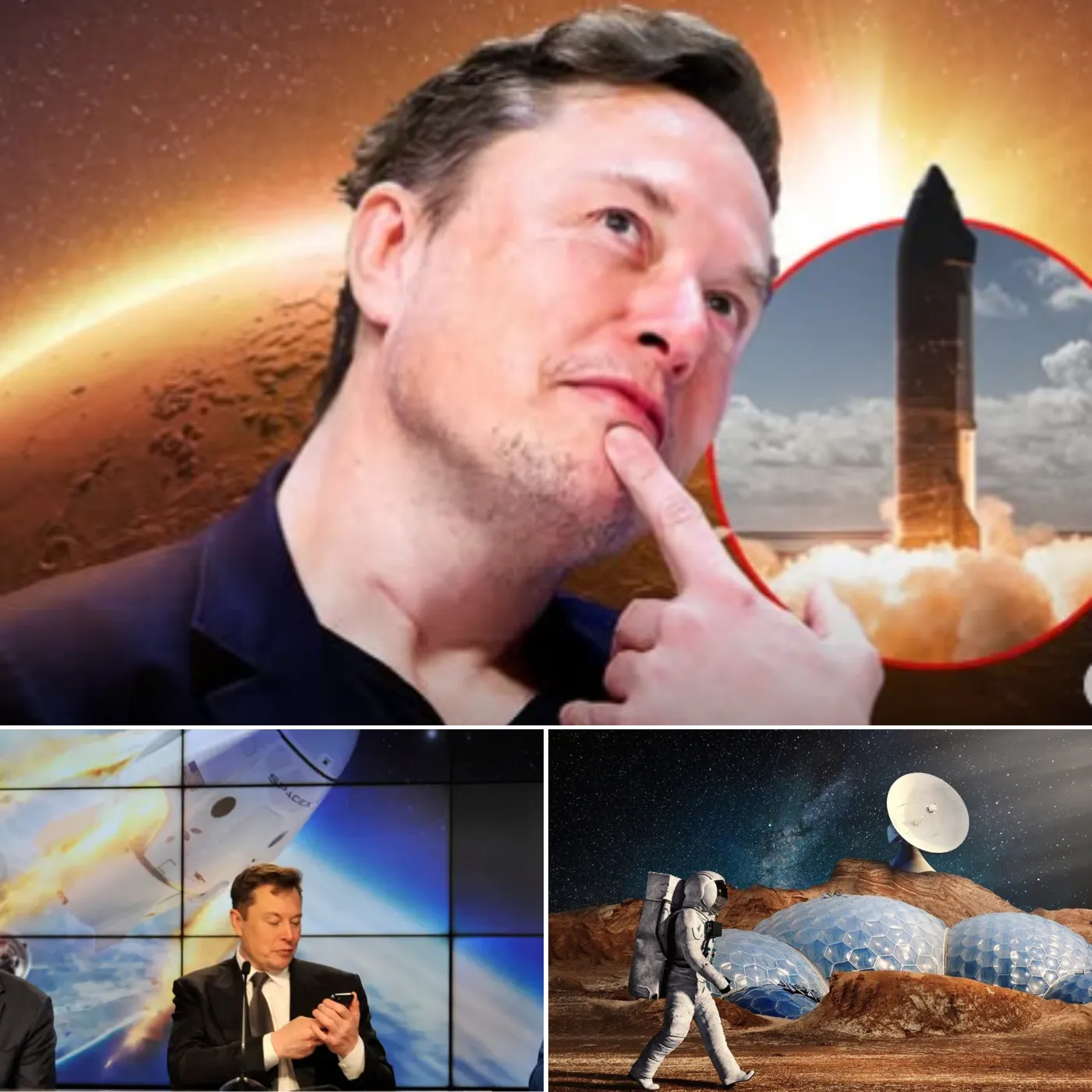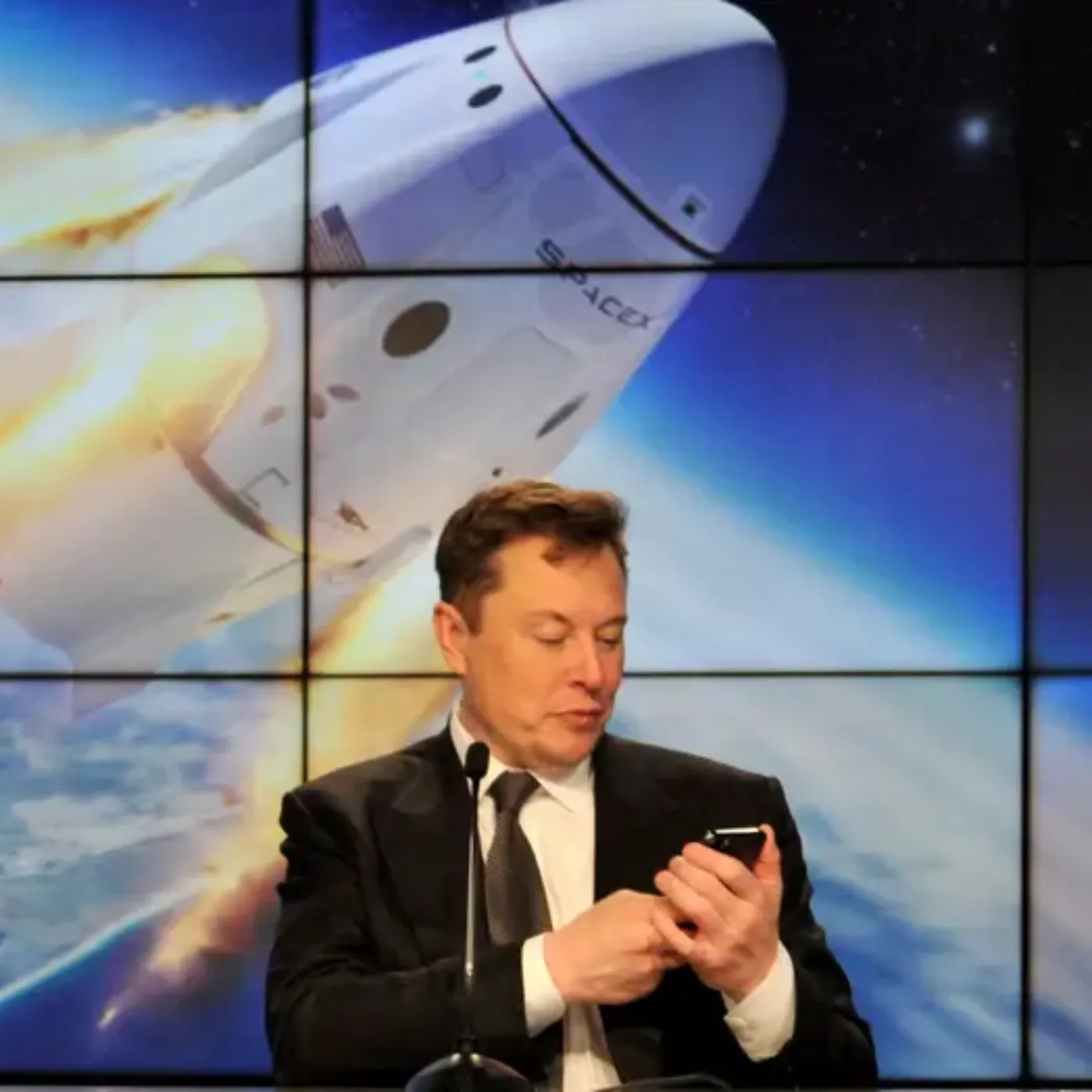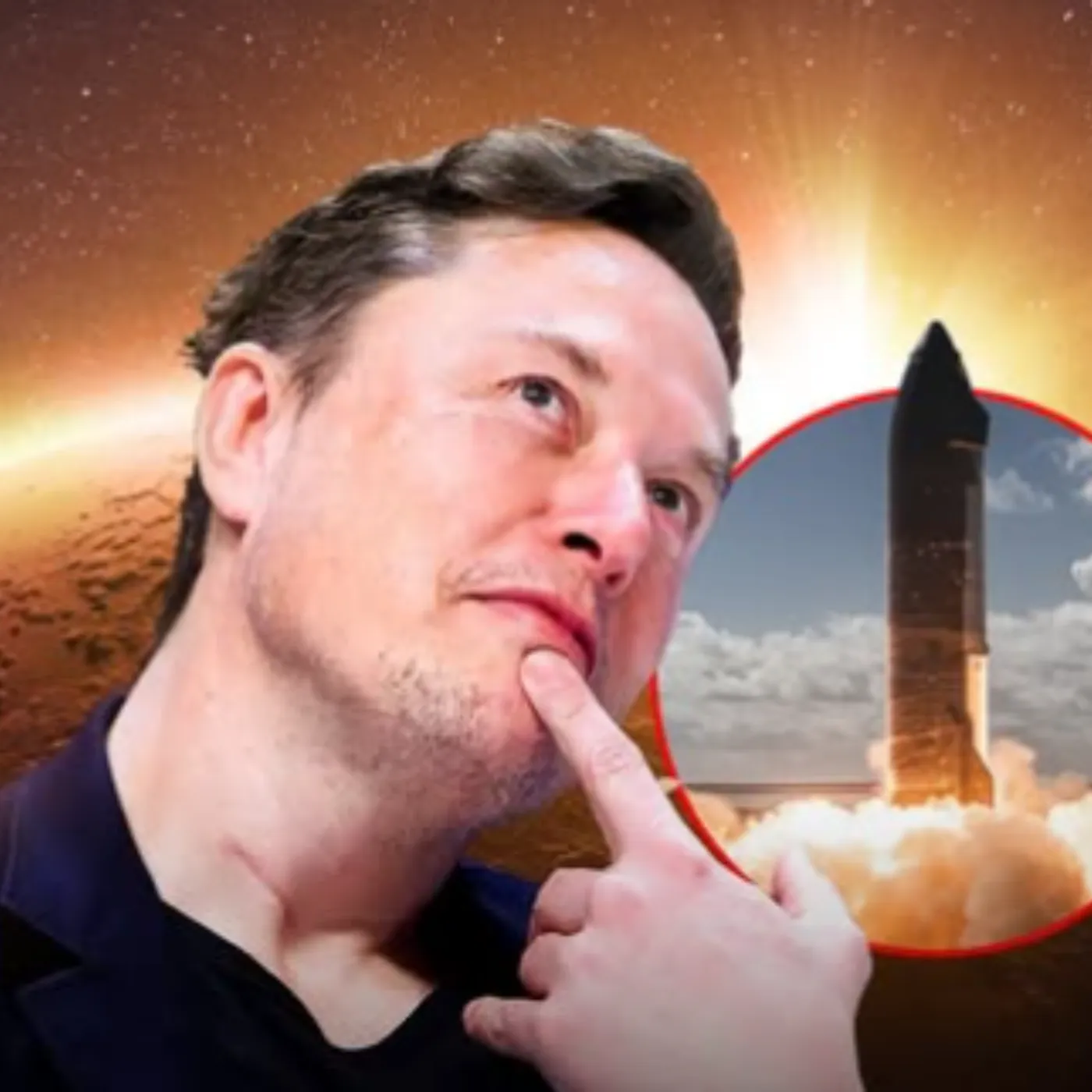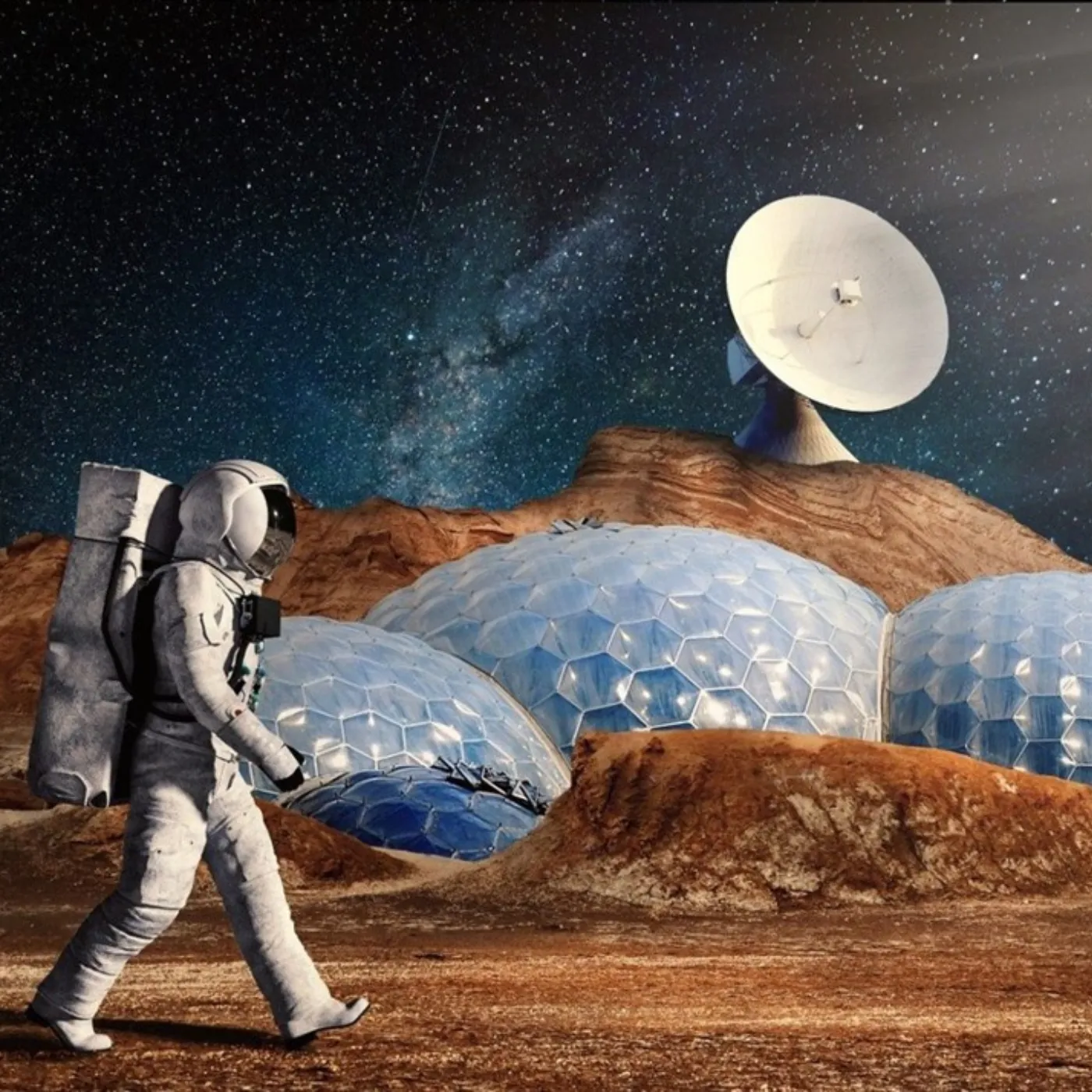

Elon Musk Drops Bombshell: “I Plan to Take My Last Breath on Mars!”
In the world of technology and space exploration, few figures are as influential and polarizing as Elon Musk. As the CEO of SpaceX and Tesla, Musk has consistently pushed the boundaries of innovation, garnering both admiration and skepticism. Recently, he made headlines with a shocking statement: “I plan to take my last breath on Mars!” This bold declaration has ignited discussions about the future of space travel, the colonization of Mars, and Musk’s vision for humanity’s place in the cosmos. In this comprehensive article, we will explore the implications of Musk’s statement, the challenges of Mars colonization, and the broader impact of his vision on the future of humanity.

The Vision of Elon Musk
Elon Musk was born on June 28, 1971, in Pretoria, South Africa. From a young age, he displayed an insatiable curiosity and a passion for technology. After moving to the United States to pursue his dreams, Musk founded several successful companies, including PayPal, before turning his attention to space exploration.
In 2002, Musk founded SpaceX with the ambitious goal of reducing the cost of space travel and enabling human colonization of Mars. His vision was clear: to make humanity a multi-planetary species and ensure its survival in the face of potential global catastrophes.
Achievements of SpaceX
Since its inception, SpaceX has achieved numerous milestones that have reshaped the aerospace industry. Some notable accomplishments include:
-
Falcon 1: In 2008, SpaceX became the first privately-funded company to send a liquid-fueled rocket into orbit, marking a significant milestone in commercial spaceflight.
-
Falcon 9: The development of the Falcon 9 rocket revolutionized space transportation by introducing reusable rocket technology, drastically reducing launch costs.
-
Crew Dragon: In 2020, SpaceX successfully launched astronauts to the International Space Station (ISS) as part of NASA’s Commercial Crew Program, marking a new era in crewed spaceflight.
-
Starship: Currently in development, the Starship rocket aims to carry humans and cargo to Mars and beyond, with the ultimate goal of establishing a self-sustaining city on the Red Planet.
These achievements reflect Musk’s relentless pursuit of innovation and his commitment to making space exploration accessible to all.
The Mars Mission: A Bold Ambition
Mars has long fascinated scientists, researchers, and the general public alike. With its similarities to Earth—such as the presence of water ice and a day length similar to ours—Mars presents a unique opportunity for exploration and potential colonization. Musk’s vision for Mars extends beyond mere exploration; he aims to establish a self-sustaining human presence on the planet.
Musk’s Vision for Colonization
In his statement, “I plan to take my last breath on Mars,” Musk emphasizes his personal commitment to the Mars mission. This declaration symbolizes not only his dedication but also the urgency he feels for humanity to explore and settle on the Red Planet.
Musk envisions a future where:
-
Sustainable Living: Colonists on Mars would rely on local resources for food, water, and energy, creating a self-sustaining habitat.
-
Regular Transportation: The development of the Starship rocket will enable regular transportation between Earth and Mars, making it feasible for people to travel to the planet.
-
Technological Advancements: Innovations in life support systems, agriculture, and infrastructure will be essential for establishing a thriving Martian colony.
By sharing his vision, Musk aims to inspire others to support the mission and contribute to making life on Mars a reality.
The Implications of Musk’s Statement
Musk’s declaration has reignited interest in space exploration and the potential for human colonization of Mars. Space enthusiasts, scientists, and the general public are captivated by the idea of settling on another planet. This renewed enthusiasm could lead to increased funding, research, and collaboration within the space industry.

Challenges Ahead
While Musk’s vision is inspiring, the journey to Mars is fraught with challenges. Some of the key obstacles include:
-
Radiation Exposure: Mars lacks a protective magnetic field, exposing colonists to harmful cosmic radiation. Developing effective shielding will be critical for long-term habitation.
-
Life Support Systems: Creating sustainable life support systems for air, water, and food production is crucial for the survival of colonists.
-
Psychological Factors: The isolation and distance from Earth could impact the mental health of astronauts and settlers. Addressing these psychological challenges will be vital for a successful Mars mission.
The Role of Collaboration
Musk’s ambitious plans for Mars will require collaboration among various stakeholders, including governments, private companies, and international space agencies. Partnerships can help share resources, knowledge, and expertise, ultimately accelerating progress toward the goal of colonization.
The Future of Space Exploration
Musk’s commitment to taking his last breath on Mars signifies the dawn of a new era in space exploration. With advancements in technology and a growing interest in the cosmos, humanity stands on the brink of unprecedented opportunities.
Inspiring Future Generations
By sharing his vision, Musk aims to inspire future generations to pursue careers in science, technology, engineering, and mathematics (STEM). The prospect of colonizing Mars can captivate young minds and encourage them to explore the possibilities of space.
The Global Perspective
As nations around the world invest in space exploration, the future of space travel is increasingly becoming a global endeavor. Countries like China and India have made significant strides in their space programs, leading to a competitive environment that fosters innovation and collaboration.
The Impact on Humanity
Musk’s vision for a multi-planetary species is rooted in the belief that humanity’s survival depends on expanding beyond Earth. In the face of climate change, natural disasters, and potential global conflicts, establishing a presence on Mars could serve as a safeguard for the future of our species.
Scientific Advancements
The pursuit of Mars colonization will undoubtedly lead to scientific advancements that benefit life on Earth. Research in areas such as sustainable agriculture, renewable energy, and resource management can provide valuable insights for addressing challenges we face here at home.
A Unifying Goal
The quest to colonize Mars has the potential to unite humanity around a common goal. As people from diverse backgrounds come together to support space exploration, it can foster collaboration and understanding, transcending geopolitical boundaries.
The Technological Innovations Required
To make the journey to Mars feasible, advancements in propulsion technology are essential. Musk’s Starship is designed to utilize Raptor engines powered by methane and liquid oxygen, which can be produced on Mars. This approach not only makes the journey more efficient but also lays the groundwork for sustainable living on the planet.
Life Support Systems
Creating effective life support systems will be critical for sustaining human life on Mars. This includes developing technologies for recycling air and water, as well as growing food in Martian soil. Research into hydroponics and other agricultural methods will be crucial in ensuring a stable food supply for colonists.
Habitat Development
Establishing habitats that can protect colonists from the harsh Martian environment is another key challenge. These structures must be designed to withstand extreme temperatures, radiation, and dust storms. Innovative building materials and designs will be necessary to create safe and comfortable living conditions.
The Psychological and Social Aspects of Colonization
The psychological impact of living on Mars cannot be underestimated. Colonists will face isolation, limited social interactions, and the challenges of adapting to a new environment. Developing support systems and mental health resources will be essential for maintaining the well-being of Martian settlers.
Building a Martian Society
As humanity begins to establish a presence on Mars, the question of governance and societal structure will arise. What kind of community will emerge on the Red Planet? Will it mirror Earth, or will it evolve into something entirely new? These questions will be important as Musk’s vision becomes a reality.
Preparing for the Journey
Preparing astronauts for the journey to Mars will require rigorous training in various disciplines. This includes physical fitness, technical skills, and psychological resilience. SpaceX is already investing in training programs to ensure that its crew is ready for the challenges of interplanetary travel.
Testing Technologies
Before sending humans to Mars, extensive testing of technologies and systems will be necessary. SpaceX plans to conduct numerous missions to test the Starship and its life support systems, simulating conditions on Mars to ensure everything functions as intended.
Elon Musk drops bombshell: “I plan to take my last breath on Mars!” This audacious statement encapsulates Musk’s passionate commitment to making Mars colonization a reality. His vision is not just about exploring another planet; it represents a profound belief in the potential of humanity to thrive beyond Earth.

As we look ahead to the future of space exploration, the implications of Musk’s plans are vast and far-reaching. From technological advancements to the unifying goal of becoming a multi-planetary species, the journey to Mars promises to reshape our understanding of life and our place in the universe.
While challenges abound, the pursuit of colonizing Mars is a testament to human ingenuity and determination. With visionary leaders like Elon Musk at the forefront, the dream of living on another planet is closer than ever. As we embark on this extraordinary adventure, one thing is clear: the future of humanity lies among the stars, and Mars may very well be our next home.


















